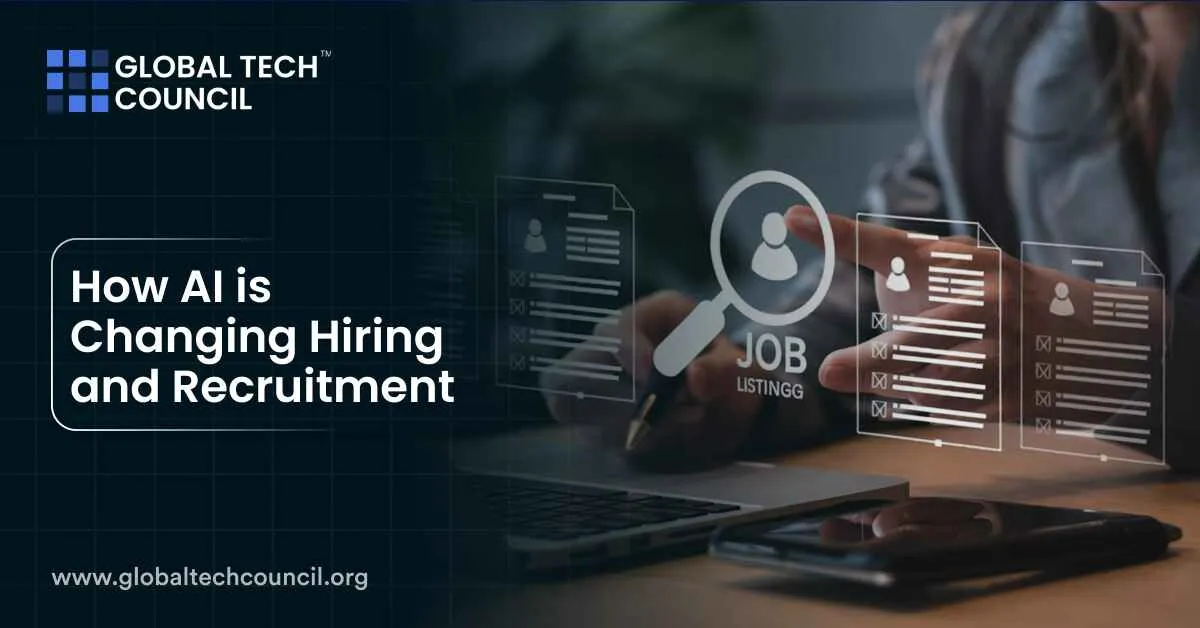
What AI Brings to Recruitment
AI in hiring refers to the use of smart algorithms and tools to simplify different stages of the hiring process. This includes identifying candidates, analyzing resumes, scheduling interviews, and even helping new hires settle into their roles. By taking over repetitive tasks, AI enables recruiters to spend more time on meaningful interactions and important hiring strategies.
Finding Candidates
AI tools can examine job descriptions and scan multiple sources to find individuals whose skills align with job requirements. For example, platforms like Entelo locate suitable candidates online and predict their openness to exploring new opportunities.
Reviewing Resumes
Automated systems can handle large volumes of resumes, picking out those that best meet the role’s criteria. This eliminates much of the manual effort recruiters face. Reports suggest that many HR professionals rank resume screening as one of their toughest tasks, underlining the demand for AI-driven solutions.
Coordinating Interviews
AI chatbots simplify the scheduling of interviews by managing communication between candidates and interviewers. Tools like Paradox offer personalized scheduling, reducing unnecessary back-and-forth and improving the process overall.
Evaluating Applicants
AI-powered platforms assess applicants’ abilities, personality traits, and overall compatibility with company culture. For instance, systems like HireVue analyze video interviews to provide recruiters with valuable information about candidates’ responses and behavioral patterns.
Welcoming New Hires
AI tools guide new employees through required paperwork and training programs, making their transition into the company much smoother. Solutions like Leena AI automate tasks while offering insights and assistance throughout onboarding.
New Developments in AI for Hiring
The use of AI in recruitment saw notable growth. Reports show that around 40% of companies now use AI tools for hiring.
Surveys reveal that many recruiters believe AI has the potential to reduce biases during the hiring process, creating a fairer and more inclusive system overall.
Benefits of AI in Recruitment
Saving Time
AI handles repetitive tasks, letting recruiters concentrate on more impactful aspects of hiring. This creates a quicker, smoother process. For example, Unilever used AI to review hundreds of thousands of applications and reduced the overall hiring time from months to weeks.
Better Experience for Applicants
AI tools provide regular updates and feedback to job seekers, ensuring they remain informed throughout the process. This reduces uncertainty and leaves a positive impression on candidates.
Data-Based Decisions
AI offers insights that help recruiters make well-informed choices, reducing guesswork and promoting fairness during evaluations.
Challenges with Using AI
Bias in Systems
If data used to train AI includes biases, the results may reflect those biases. Regular reviews of AI tools are necessary to ensure fairness.
Reduced Personal Interaction
Overuse of AI can make the process feel impersonal. Striking a balance between automation and human connection is key.
Privacy Concerns
Candidate data must be handled responsibly, complying with laws like GDPR and other regional regulations.
What’s Next for AI in Hiring?
Predicting Success
AI will likely be used to anticipate employee success and turnover, helping organizations make better long-term hiring decisions.
Engaging Applicants
Smart chatbots and virtual assistants will improve interactions with candidates, answering questions and guiding them through applications more effectively.
Seamless Integration
AI is expected to work alongside other HR tools, improving workflows and helping organizations manage talent more effectively.
Conclusion
AI is already transforming how companies approach recruitment, offering faster, smarter, and fairer hiring processes. By balancing automation with personal engagement, organizations can harness the full potential of this technology. As AI continues to evolve, its role in recruitment is expected to grow, creating new possibilities for improving hiring practices and enhancing the candidate experience.